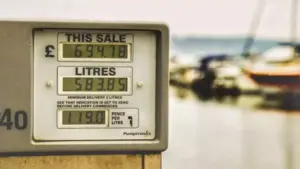Unleaded Uncertainties: South Africa’s Petrol Increase
The petrol increase has become like a trusted travel buddy on our commutes, like a nagging toddler at every fill-up. It’s like every month, the numbers on the pump get higher, digging deep into our pockets and squeezing economies worldwide. But what’s causing this seemingly relentless rise in fuel prices? Buckle up, because we’re about to take a deep dive under the hood of this complex engine driving petrol price fluctuations.
Supply vs. Demand: A Tug-of-War on the Oil Market
The story begins with a classic economic battle: supply versus demand. As the global economy recovers from the pandemic’s blows, our thirst for oil has roared back to life. Unfortunately, oil production hasn’t kept pace with this renewed demand. Imagine a playground with a limited number of swings – the more kids who want to play, the higher the competition for a spot. This imbalance creates a tighter oil market, pushing prices up. Just like those coveted swings become more valuable with fewer available, oil becomes more expensive when it’s in short supply.
Geopolitical Jitters: Spilling Oil on the Global Tracks
Now, picture this: a major oil-producing region erupts in political unrest or conflict. Suddenly, the smooth flow of oil gets disrupted, like a pileup on a crucial highway. This scarcity sends shockwaves through the market, causing prices to jump like a car hitting a pothole you didn’t see in time. Recent geopolitical events have highlighted this vulnerability, making the petrol increase even more jolting and unpredictable.

Currency Chaos: The Exchange Rate Rollercoaster
Oil is traded internationally in US dollars. So, if your local currency weakens against the greenback, it’s like paying more for each barrel of oil you import. Imagine riding a rollercoaster – the exchange rate dip throws the price of imported oil upwards, leading to a higher petrol increase at home.
Going Green, but at a Cost: Environmental Regulations
The fight against climate change is on, and governments are putting stricter rules on fuel quality and emissions. These are necessary steps towards a cleaner future, but they often come with a price tag. Refineries need to invest in cleaner technologies and processes to comply with these regulations. Unfortunately, these extra costs end up on our shoulders as consumers, adding another layer to the petrol increase.
South Africa’s Unique Journey: Import Reliance
South Africa, despite having some domestic oil production, relies heavily on imports to meet its fuel needs. This makes it particularly susceptible to the global oil price roller coaster. Add currency fluctuations to the mix, and you’ve got a recipe for significant petrol price swings for South African consumers and businesses.
Speculation: The Market’s Whispering Game
Imagine a rumor mill swirling around oil supplies or geopolitical tensions. Investors, acting on these whispers, buy or sell oil futures contracts, which are essentially bets on the future price of oil. While speculation can make things more volatile, it also helps the market absorb shocks and find a fair price. It’s like having a group of experienced drivers on the road – they can anticipate potential issues and adjust their course accordingly, helping to stabilize traffic flow.
The latest fuel price forecasts for the beginning of May hint at a bumpy ride. While the exact date remains a mystery, petrol prices (both 93 and 95) are expected to climb by around 33-34 cents per litre. But there’s a glimmer of hope for diesel drivers – a possible decrease of 30 cents per litre could be on the horizon. Remember, these are just predictions, and the pumps might surprise us. But hey, forewarned is forearmed!
The Road Ahead: Understanding is Key
The petrol increase is a complex journey with many twists and turns. Understanding the various factors involved – supply and demand, geopolitics, currency exchange, regulations, speculation, and even our own behavior – is crucial. By staying informed and making smart choices, we can navigate this challenging landscape. We can explore carpooling options, consider fuel-efficient vehicles, and adjust our driving habits when possible. It’s like fewer cars on the road during rush hour – less demand eases congestion and can lead to smoother traffic flow (and potentially lower fuel consumption). Remember, knowledge is power, and in this case, it can help us steer towards a more stable and sustainable energy future, reducing our reliance on volatile petrol prices.
Also read:10 Easy Ways to Save Money on Petrol in South Africa and



